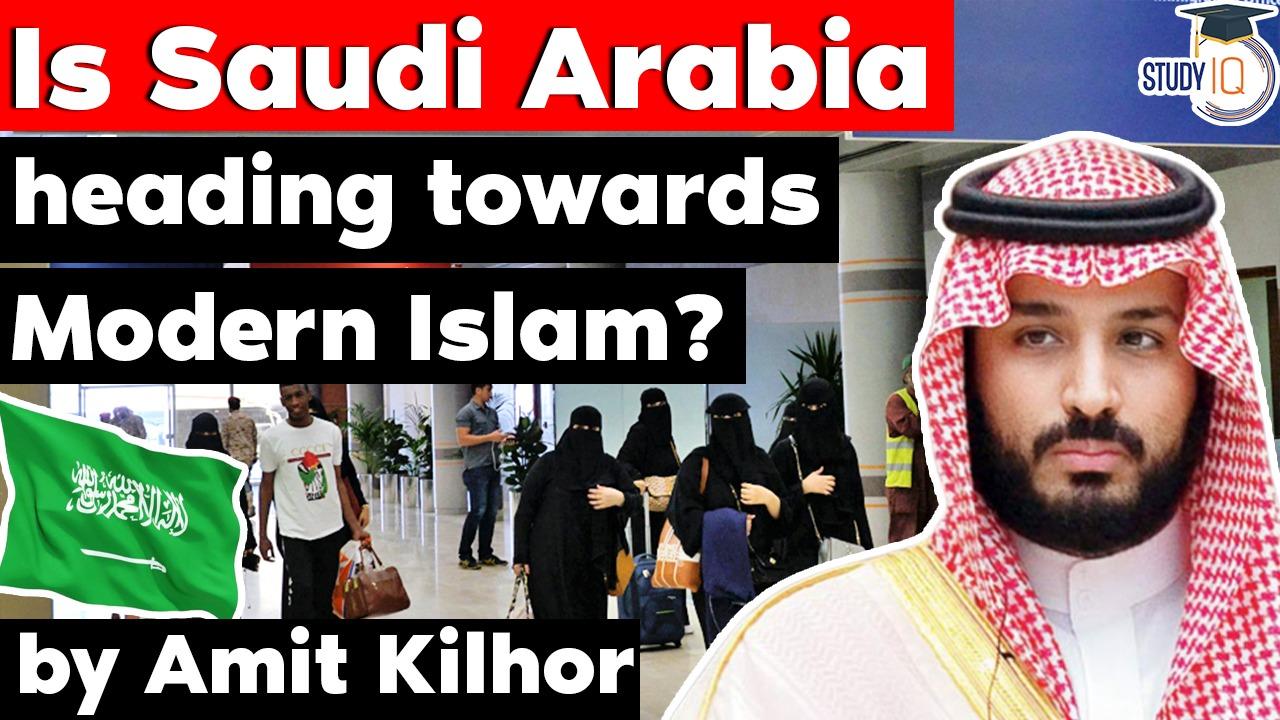Table of Contents
Saudi Arabia heading towards modern islam?

Wahhabism is a conservative movement within Islam’s Sunni branch.
Wahhab advocated a return to a “purer” form of Islam, focusing on its origins and the absolute sovereignty of God. That means banning the cult of saints and forbidding tobacco, alcohol etc.
Wahhabism is extensively practised in Saudi Arabia.
Wahhabism has become known as an intolerant and aggressive form of Islam, both by Muslims and outsiders
For decades, commercial businesses in Saudi Arabia have shut their doors as soon as the first call of prayer is heard.
Cars would queue up waiting for petrol stations to open, while patrons and customers at pharmacies, restaurants, and supermarkets would have to wait outside.


kingdom’s de facto ruler, Crown Prince Mohammed bin Salman, is chipping away at the power of the doctrine known as Wahhabism that has underpinned his family’s rule in the birthplace of Islam.

- Religion shaped Saudi Arabia into a place like no other. The nation is home to the two holiest Muslim sites, in Mecca and Medina, and its constitution is the Koran.
- Wahhabism, a stringently conservative strain of Sunni Islam, defined the kingdom for decades.
- But it runs counter to Prince Mohammed’s now five-year-old plan to diversify the economy away from oil by 2030.

- The crown prince wants to draw foreign investment and build the kingdom’s entertainment and tourism sectors, which face stiff competition from Saudi Arabia’s more permissive neighbors such as the United Arab Emirates.
- Fatwas (religious edicts) of the kind that Saudi clerics used to issue—inciting hatred against Westerners, claiming that driving can damage women’s ovaries, and banning excavations of pre-Islamic historical treasures—are not in sync with the new goal.
- “We cannot grow, we cannot attract capital, we cannot have tourism, we cannot progress with such extremist thinking in Saudi Arabia,” Prince Mohammed said.
- “If you want millions of jobs, if you want unemployment to decline, if you want the economy to grow, if you want your income to improve, you must eradicate these projects.”
- But the changes continue. In the past five years, women have been allowed to drive—ending the only ban of its kind in the world—as well as travel without the consent of a male guardian and serve as special security guards in Mecca.
- The government announced in February that it’s working to overhaul the judicial system, which is rooted in Islamic law, by the end of the year, partly to encourage investors long deterred by the perceived arbitrariness of the kingdom’s courts.
- The declining power of the religious establishment has been evident for a while, though.
- The leadership of Prince Mohammed, 35, comes in greater contrast to the kingdom’s regional adversary, Iran.
- In June, that country elected Ebrahim Raisi, 60, as president. The hardline cleric was a staunch supporter of the 1979 Islamic Revolution that brought Ayatollah Ruhollah Khomeini to power.

BOTTOM LINE –
- The Saudi crown prince sees curbing the religious establishment as necessary for development. Saudis are divided on changes such as turning down mosque loudspeakers.
Latest Burning Issues | Free PDF






















 WhatsApp
WhatsApp